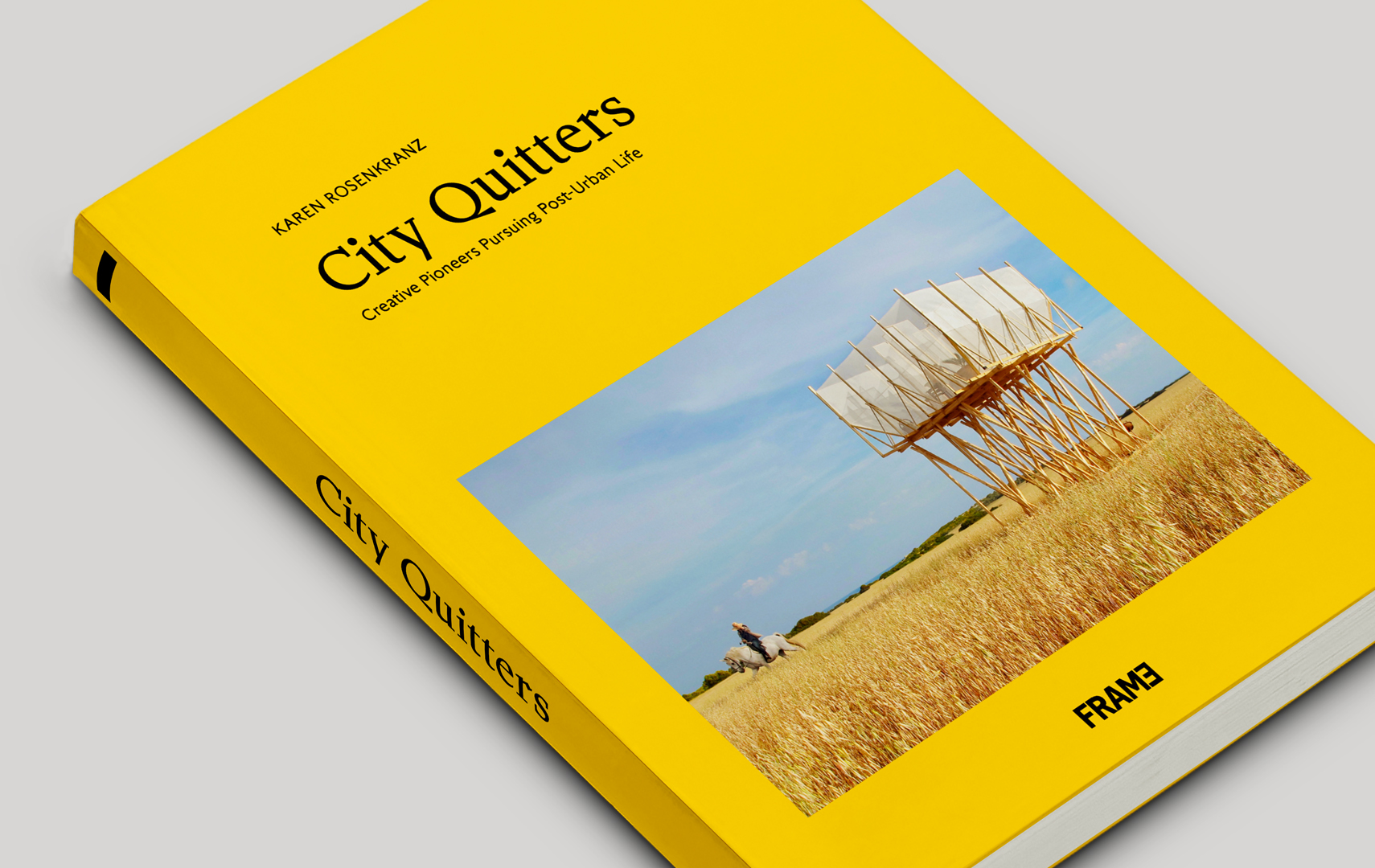As a reoccurring feature on the Sustainability Roundtable blog, we will post reviews of books related to sustainability. Interested in submitting your own review to the blog? Contact August at aolundsmith@gmail.com.
City Quitters: An Exploration of Post-Urban Life
by Karen Rosenkranz
Reviewed by Kacper Jarecki
City Quitters is a high-quality book with glossy paper and beautiful photographs. As the title suggests, this book follows people who have “quit” city life to move to the countryside. It is a work of nonfiction. There are 22 personal stories of various people and what motivated them to change their lifestyle. What is also interesting is that there are small towns in 12 countries featured here, including America, Portugal, Japan, China, India, Brazil, and more.
I really enjoyed living vicariously reading stories of these different people: usually taking a chance to just leave it all behind and start anew. Some underlying themes that I saw were the affordability of living in the countryside. Having more time to engage in creative endeavors. The quietness. The ability to just go for a walk in the wilderness anytime. Reading this book and looking through the pictures was relaxing and felt like a breath of fresh air.
One story here featured someone who moved from New York City to Aresus, a small town in Italy with only 6 people! I can’t imagine doing that, but it certainly was fun reading about it. This same person was a graffiti artist, and there is even a picture of him doing graffiti on a cactus, drawing a smiley face on it with spray paint. I guess you can take a person out of the city, but you can’t take the city out of the person, lol. I was even surprised to learn of another person moving to Hudson, NY, a small artistic community, about 2 hours away from where I live (and where I want to visit now). She left the city because it was just too expensive for her. She talked about being able to follow her dream and open up her own restaurant with her partner. She mentioned how affordable it was and how people in the community went out of their way to help her. If you saw the pictures, the design of her restaurant is very unique. She really had a very particular vision and I’m happy for her to be able to bring it to life, whereas in New York City, she would probably have gone deep in debt and spent countless hours, just to find a small place to rent. This is just a small sample of the stories. There are many more including someone who built her own home in the trees, a couple who decided to raise their kids to be closer to nature, someone (a skateboarder) who wanted to grow his own food…
After the end of every chapter is a web page link or resource so that you can learn more about the person featured, and possibly even get in touch with them. I love books because they can take you anywhere, and it is so inspiring to read about people taking a chance to turn their fantasy to reality. This book is not meant to be read in one sitting. Whenever you need a break from that big city life, you can just read a story at random, and feel a little better. The one thing I will say, is that most of these people in these pages seem to be artists or designers who can work remotely. Although I don’t exactly see myself in their shoes, I do enjoy reading about them.
Discussion questions:
- Out of the 22 stories in the book, which one did you relate to the most, and why?
- What are the benefits of living in a small town? What are the drawbacks?
- If you had a choice of a small town, what kind of town would you like? For example, would you like to live close to the beach, the forest, the desert, the mountains, an island?
- If you could try living in any country besides your own, which one would it be? Why?
- Many of the people in the book strive to be self-sufficient. Do you ever see yourself growing your own food? Making repairs to your own house? Would you be willing to learn?
- Cities usually have jobs, and if you want to leave the city, an entrepreneurial spirit is helpful to be able to get by. If you could create your own business, what would it be?
- Many people in this book talk about having more time after moving to the countryside. If you had more time, what would you do? What kind of hobbies or projects would you pursue?
